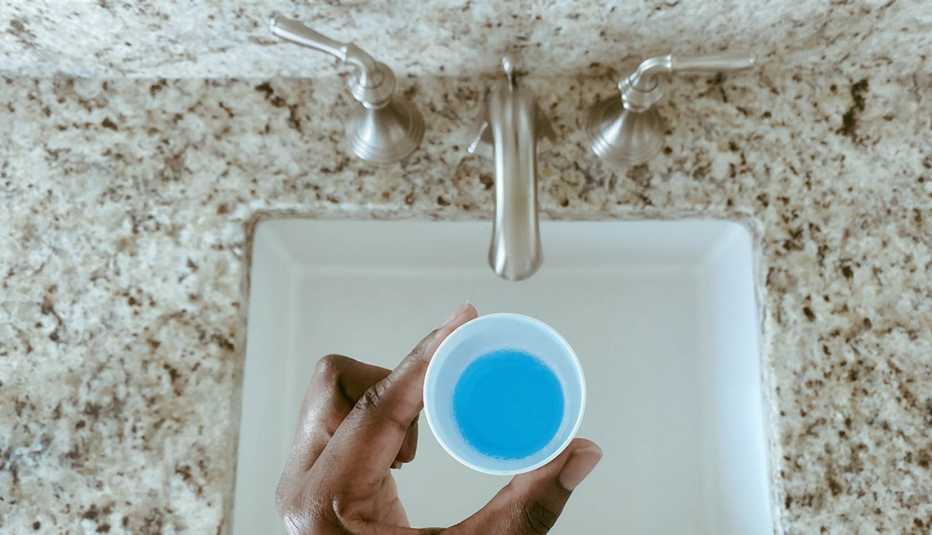AARP Hearing Center


It’s normal for your mouth to feel dry every once in a while, such as when you’re upset or under stress. But if your mouth frequently seems dry and sticky, you may have dry mouth, a condition that can lead to serious health problems.
Dry mouth, or xerostomia, happens when the salivary glands in your mouth don’t produce enough saliva to keep your mouth moist. It’s most often caused by medications, says Stephen Shuman, a professor at the University of Minnesota School of Dentistry and chair of the oral health work group of the Gerontological Society of America.
“More than 400 medications list dry mouth as a side effect,” Shuman says. “Some are meant to dry people out, like diuretics. Others aren’t meant to do that but just have that effect.”
Urinary incontinence drugs are the biggest culprit, according to a 2018 review in the Journal of the American Geriatrics Society. Other common causes are blood pressure medications, antidepressants, anti-anxiety medications, antihistamines, opioid pain medicines and inhaled bronchodilators.
Causes beyond your Rx
As many as 26 percent of men and 33 percent of women are believed to have dry mouth, according to the American Dental Association.
Dry mouth is especially prevalent in older adults. The biggest reason is that people age 60-plus take more medications than those who are younger, says Jennifer Hartshorn, a dentist who specializes in geriatrics and special needs at the University of Iowa.
Dehydration may also play a role, Hartshorn says, because your sense of thirst is blunted as you age.
Dry mouth can also be a sign of an underlying medical condition such as diabetes, HIV/AIDS, hepatitis C or an autoimmune disease called Sjögren's syndrome. And it is a common side effect for people undergoing radiation therapy or chemotherapy for cancer.
Whatever the cause, dry mouth is not a normal part of aging, experts say. Saliva protects your mouth and teeth by maintaining a healthy mineral balance, diluting acid and washing away food and bacteria. Without saliva, bacteria can quickly attack, decaying teeth and infecting gums.
“You can have older adults who have done the exact same oral hygiene routine since they were young, and they’re suddenly getting cavities that they never had before,” Hartshorn says. “All that changed is [that they're taking] a new medicine that causes dry mouth.”
In addition to causing tooth decay, inadequate saliva can also diminish your sense of taste, give you bad breath, cause yeast infections or soft-tissue problems, and make it difficult to swallow or speak.
Fortunately, experts say taking these steps can help alleviate dry mouth symptoms and keep the fluid flowing.




























































More on Health
8 Signs of Dehydration You Shouldn't Ignore
Feeling thirsty? You may already be in the red zone. What to watch to avoid dizziness, falls and more5 Essentials to Keep in Your Medicine Cabinet After 50
Plus, the over-the-counter drugs to avoid as you age